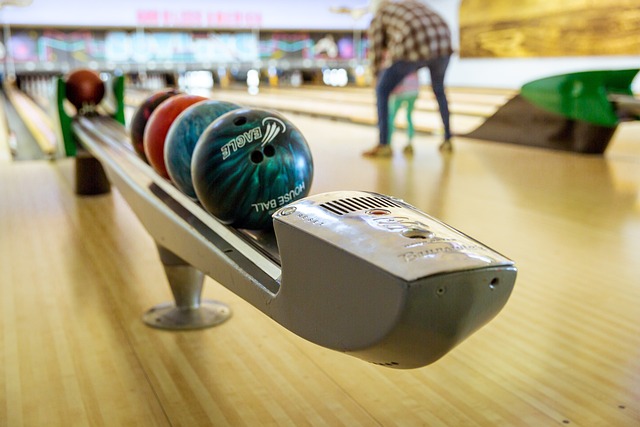
Are you ready to unlock the secrets of peak performance in competitive athletics? Dive into the world of sports psychology and discover the mental strategies that can take your game to new heights.
In this article, we will explore the power of visualization and mental imagery, goal setting for optimal performance, managing pressure and overcoming mental blocks, developing resilience and mental toughness, as well as building confidence through positive self-talk.
Get ready to master the mind games that can set you apart from the competition.
Key Takeaways
- Visualization and mental imagery enhance focus, concentration, and decision-making skills.
- Goal setting and performance optimization increase motivation, improve focus, and foster a positive mindset.
- Managing pressure and overcoming mental blocks require clear and focused mindset, positive self-talk, and focus on controllable factors.
- Developing resilience and mental toughness involves concentration, mindfulness techniques, strategic thinking, quick decision-making, and adaptability in different situations.
The Power of Visualization and Mental Imagery
You can enhance your performance by using visualization and mental imagery. These powerful techniques have been proven to improve focus, concentration, and decision-making skills in competitive athletics.
When you vividly imagine yourself executing the perfect technique or making split-second decisions with precision, your brain begins to create neural pathways that mirror those actions. This not only enhances muscle memory but also strengthens the connection between mind and body.
By regularly engaging in visualization exercises, athletes can train their minds to remain focused even under pressure. They learn how to block out distractions and maintain a laser-like concentration on the task at hand. This heightened level of focus allows athletes to make better decisions in critical moments, leading to improved performance overall.
Visualization and mental imagery are not just abstract concepts; they are practical tools that can be incorporated into any training regimen. Athletes who consistently practice these techniques will witness significant improvements in their abilities to concentrate, make quick decisions, and ultimately excel in their respective sports.
So why wait? Start harnessing the power of visualization today and unlock your full potential on the field or court.
Setting specific goals can greatly enhance an athlete's performance. By clearly defining what they want to achieve, athletes are able to focus their efforts and channel their energy towards reaching those goals. Performance tracking plays a crucial role in this process, as it allows athletes to measure their progress and make adjustments accordingly. Goal attainment becomes more tangible when athletes have concrete targets to strive for.

Here are five key benefits of goal setting in sports psychology:
- Increased motivation: Setting challenging yet attainable goals provides athletes with a sense of purpose and drive.
- Improved focus: Goals help athletes prioritize their training and competition strategies, directing their attention towards what truly matters.
- Enhanced self-confidence: Successfully achieving goals boosts an athlete's belief in their abilities and fosters a positive mindset.
- Effective time management: Clear goals enable athletes to allocate their time efficiently, making the most of every training session.
- Greater resilience: When faced with setbacks or obstacles, having well-defined goals helps athletes stay resilient and bounce back stronger.
By utilizing goal setting techniques and diligently tracking performance, athletes can optimize their potential and unlock peak performance on the field or court.
Managing Pressure and Overcoming Mental Blocks
To effectively manage pressure and overcome mental blocks, it's important to develop strategies that allow for a clear mind and focused mindset.
Managing fear is crucial in high-pressure situations. It's natural to feel anxious or nervous before a big game or competition, but letting that fear consume you can hinder your performance. One technique is to acknowledge the fear and then shift your focus to the task at hand. Remind yourself of your training, skills, and past successes. Visualize yourself succeeding and imagine the feeling of accomplishment that comes with it.
Overcoming doubt is another challenge athletes face. Doubt can creep into your mind and make you question your abilities. To combat this, use positive self-talk and affirmations to build confidence in yourself. Remember that mistakes are part of the learning process and don't define you as an athlete. Stay focused on what you can control – your effort, attitude, and preparation – rather than worrying about external factors beyond your control.
By managing fear and overcoming doubt, you'll be able to perform at your best when it matters most.
Developing Resilience and Mental Toughness
Developing resilience and mental toughness is essential for athletes to overcome challenges and perform at their best. It's not just about physical strength, but also about cultivating a strong mindset that can withstand the pressures of competition.
To achieve this, athletes must focus on developing their concentration and enhancing their mental agility.
Mental toughness requires the ability to stay focused amidst distractions and make quick decisions under pressure. One way to develop focus and concentration is through mindfulness techniques such as meditation or visualization exercises. These practices train the mind to block out external noise and maintain a laser-like focus on the task at hand.

In addition, athletes can enhance their mental agility by engaging in strategic thinking exercises and problem-solving activities. This helps them become more adaptable in different situations, making it easier for them to make split-second decisions during intense moments of competition.
By developing resilience, focus, concentration, mental agility, and decision-making skills, athletes can unlock their full potential and achieve peak performance in sports. It's all about training both the body and mind to work together harmoniously towards success.
So embrace the challenge, push your limits, and watch yourself soar beyond what you ever thought possible.
Building Confidence and Positive Self-Talk
Boost your performance by building confidence and using positive self-talk. Building resilience is crucial in sports psychology, as it allows athletes to bounce back from setbacks and maintain a strong mindset. By developing a belief in oneself and maintaining motivation, athletes can overcome challenges and improve their overall performance.
Confidence plays a significant role in athletic success. When you believe in yourself, you're more likely to take risks and push beyond your limits. Positive self-talk is an effective tool that can help build confidence. By replacing negative thoughts with positive ones, you can reinforce your self-belief and strengthen your mental state.
Motivation is another key aspect of building confidence. When you have a clear goal in mind and are motivated to achieve it, you'll be more focused and determined during training sessions and competitions. Maintaining motivation requires setting realistic goals, visualizing success, and celebrating small victories along the way.
Incorporating these strategies into your mindset will not only boost your confidence but also enhance your overall athletic performance. Remember that building resilience, self-belief, and motivation are lifelong processes that require dedication and practice. Embrace the journey towards becoming the best version of yourself both on and off the field.
Frequently Asked Questions
What are some strategies for improving focus and concentration during competition?
To improve focus and concentration during competition, utilize pre-performance routines. These routines help you get into the right mindset before a game or race. Additionally, improving visualization techniques can enhance your mental preparation and boost your performance on the field.
How can athletes effectively manage their emotions during high-pressure situations?
To effectively manage your emotions in high-pressure situations, practice emotional regulation and develop mental toughness. Recognize and understand your emotions, then use strategies like deep breathing or positive self-talk to remain focused and composed.

Are there any techniques for overcoming self-doubt and negative thoughts?
To overcome self-doubt and negative thoughts, you must first recognize their presence. Then, challenge them with positive affirmations and evidence of your past success. Embrace failure as a learning opportunity and focus on the present moment to regain confidence.
What are some ways to bounce back from a disappointing performance and maintain motivation?
To bounce back from a disappointing performance and maintain motivation, it's crucial to find ways to stay motivated. Techniques for mental resilience in competitive athletics include setting new goals, visualizing success, seeking support, and learning from the experience.
Can you provide tips for maintaining a positive mindset and self-belief even when facing setbacks or challenges?
To maintain motivation and build resilience, focus on the present moment and your long-term goals. Embrace setbacks as learning opportunities, cultivate a positive mindset, and surround yourself with supportive individuals who encourage self-belief.
 SportsHollywoodLifestyleFashionHome & GardenTrendsPrivacy PolicyTerms And Conditions
SportsHollywoodLifestyleFashionHome & GardenTrendsPrivacy PolicyTerms And Conditions
